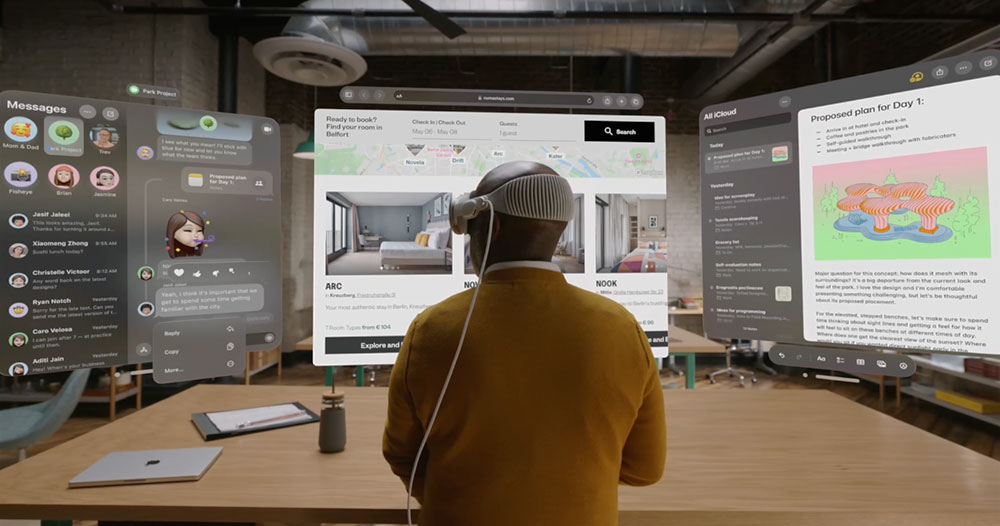Laws usually are established after interpersonal or business activities collide with the real or perceived rights of others. After parties with different positions fight about who’s right and who’s wrong, legislatures create laws to solve the legal issues raised, and courts enforce them or create their own (Miranda rules, for example).
Many of the laws from the past, however, do not make sense when applied to e-commerce. From time to time, I write columns about various laws that don’t make as much sense as they did way back when. This column addresses antitrust laws that make sense when selling traditional goods, but fall short in the e-commerce environment.
First, a little history about antitrust laws. Back in the 1800s, the U.S. and state governments created antitrust laws because of the total control companies exerted over certain industries, such asrailroads, oil, steel and sugar.
Under federal and state antitrust laws, the government or competitors can sue to stop anticompetitive behavior. U.S. and state antitrust laws were used to break up AT&T in 1982 when it was in the landline business, but Ma Bell got back together as it morphed with the advent of the Internet and use of cellphones. Today, we see antitrust laws being applied to brick-and-mortar businesses such as the proposed merger of Staples and Office Depot.
U.S. vs. Microsoft — Antitrust Applied to Software
In 2000, there was a long trial against Microsoft for antitrust violations related to its software marketing activities. The U.S. and a number of states wanted to break Microsoft into five companies for its control of a part of the software market.
The governments brought the case because, among other things, Internet Explorer was alleged to control the browser market since it was packaged as part of the Windows operating system. That made entry and maintaining market share complicated for competitors, even though any Windows user could load competing browsers. AOL was a major proponent of that claim.
During the trial, AOL purchased Netscape (a major browser at the time) for about US$5 billion. Interestingly, for many years AOL was a dominant Internet business and even purchased Time Warner. Natural market forces have since greatly diminished AOL’s market power.
The court found that Microsoft unlawfully tied its Web browser to the Windows operating system, but the Department of Justice settled during the following appeal, so Microsoft was able to continue incorporating its browser into Windows.
Another aspect of the case was that Microsoft limited its APIs, or application programming interfaces, to favored “partners.” The effect was that selected competitors were not able to provide software that worked with Microsoft’s operating system, because without the APIs, companies could not create software that would operate with Windows.
Ultimately, the judge hearing the trial ruled that Microsoft did violate antitrust laws. He restricted certain market activities and required that Microsoft make its APIs freely available so that any company could write software that would work using Windows.
While the judge did not break the company into five businesses as the government had advocated, to avoid future claims that it would violate any antitrust laws, he also ordered Microsoft to report to the U.S. government regularly before releasing products for years following the trial.
EU vs. Microsoft
Antitrust laws are not limited to the U.S. The EU sued Microsoft for anticompetitive actions, alleging that it forced every Windows customer to use only Internet Explorer. The browser competitors complained to the EU antitrust authorities.
The result was that Microsoft agreed to create an option when implementing a new version of Windows that randomly offered a number of competing browsers for customers to select. That appeased the EU.
Google’s Monopoly in the Cloud?
The issue with Microsoft’s browser was that it was packaged and included with the Windows operating system, which competing browsers claimed was anticompetitive. However, was that concern justified, since any Windows customer could load a competing browser? Did the antitrust cases actually give Google Chrome and other browsers the opportunity to compete and overtake their competitors, which eventually caused the demise of Internet Explorer?
Google controls an estimated 90 percent of the search engine business in the EU and about 67 percent in the U.S. Is that anticompetitive? Many competitors have complained that Google must be using anticompetitive methods or it would not have that kind of market share.
However, free search services offered by Google are … well … free, and no one is holding a gun to the head of the consumers requiring them to select Google — certainly not Google! So how do antitrust laws apply to Google as a search engine leader? Good question. I suggest that antitrust laws do not apply. However, until the pending claims in the EU against Google’s search engine are resolved, it is too soon to know.
Some search engine competitors in the U.S. and elsewhere suggest that Google manipulates search results for pay, and as a result, the results are not natural. There is no proof of that, and since all search engine algorithms are the secret sauce of the search engines, no one really knows how the results are cooked and presented to consumers. That information likely would remain secret even in litigation since it is Google’s trade secret. Nonetheless, even allegations of this sort do not sound like antitrust, since consumers are free to select any search engine.
The Frightful 5
In January, The New York Times identified Amazon, Apple, Facebook, Google and Microsoft as the “undisputed rulers of the consumer technology industry” in anarticle titled “Tech’s ‘Frightful 5’ Will Dominate Digital Life for Foreseeable Future.” The article included these observations:This gets to the core of the Frightful Five’s indomitability. They have each built several enormous technologies that are central to just about everything we do with computers. In tech jargon, they own many of the world’s most valuable “platforms” — the basic building blocks on which every other business, even would-be competitors, depend.These platforms are inescapable; you may opt out of one or two of them, but together, they form a gilded mesh blanketing the entire economy.Probably no would question the market power of the Frightful 5, but what about any anticompetitive behavior?
Do Antitrust Laws Apply?
Microsoft and Google, two of the five, offer myriad services, including cloud and operating systems. They have competitors in each space and do not control the markets, so it is hard to see whether antitrust laws would apply.
What about Amazon, Apple and Facebook? Do you think they are violating any antitrust laws? Let’s look at each.
Amazon sells products galore, as do hundreds of thousands, maybe even millions, of other e-commerce enterprises. Amazon also boasts the largest cloud business in the world, but there are a number of other major cloud vendors, including IBM (SoftLayer), Rackspace and Google.
Apple has a significant market share for the cell and tablet markets, but it also has significant competition from Google’s Android-based products. From a computer manufacturer and operating system perspective, Apple has major competitors, including all the Microsoft/Intel-based companies such as Lenovo, HP and Dell.
Of course, Facebook’s dominance in the social media world is unquestioned, but why and how consumers select Facebook does not fit squarely into antitrust law violations, and there are serious competitors in the social media market.
Antitrust actions may be threatened, so we can watch to see how this play out, and time will tell how the courts rule.
The Future
Antitrust laws will be in place to protect consumers in various industries, and maybe the Frightful 5 will be targets.
However, the future of anticompetitive behavior in the e-commerce space is merely speculation. For all we know, some or all of the Frightful 5 may not even exist in 10 years. Remember the past market power of AOL, MySpace and BlackBerry, which have seriously diminished. Microsoft is abandoning the name “Internet Explorer” and has created a new product.
Perhaps the Frightful 5 may not be so frightful in a few years.























































Social Media
See all Social Media